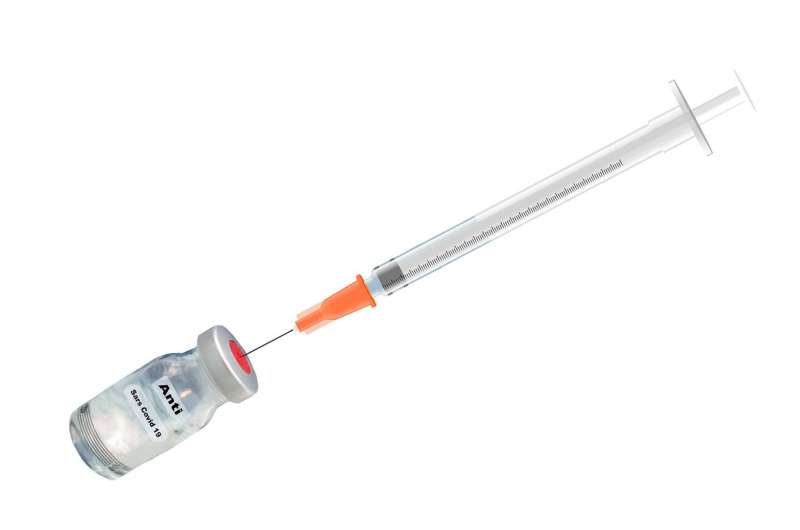Why do people still reject COVID-19 vaccines in Indonesia? Addressing the anti-vaccine movement

The world’s third-largest democracy, Indonesia, has rolled out its vaccination program since January.
However, various local groups have rejected vaccinations. This opposition adds to the challenges for the government’s COVID-19 vaccine program. At the current pace, according to the latest study, it will take more than ten years to complete.
The rejection of COVID-19 vaccinations reveals the persistent phenomenon of the anti-vaccine movement in Indonesia.
The movement, however, is not unique to Indonesia. Opposition to vaccination has also emerged and increased in other countries.
Some of the negative sentiments are shaped by country-specific contexts such as socio-cultural backgrounds, including personal beliefs like religions. That applies in Indonesia, a country with the world’s largest Muslim population. Indonesians reject the vaccine mostly because they are concerned about its halal status.
However, structural problems also play a role in the emergence of anti-vaccine movements.
I argue that a lack of trust in the arrangements for developing and distributing vaccine globally has encouraged the public’s rejection of any vaccines, including COVID-19 vaccines.
Structural problems
A system of global vaccine governance manages the development and distribution of vaccines worldwide. It’s a partnership between the public and private sectors.
We see this in Gavi, the vaccine alliance with the WHO, UNICEF, World Bank and Bill and Melinda Gates Foundation at the core. Additional partners include national governments, pharmaceutical companies and other private sector businesses.
GAVI has developed and distributed different kinds of vaccines, particularly to middle-income and least developed countries, since 2000.
However, this partnership arrangement has invited wide criticism as it puts non-state actors, particularly businesses and foundations, in an equal position to countries and even international organizations. The public fears this will benefit only certain groups of people at the risk of other people’s health.
Amid the COVID-19 pandemic, GAVI continues to play a significant role in the distribution of vaccines.
Together with the WHO and CEPI (the Coalition for Epidemic Preparedness Innovations), Gavi has launched COVAX (the COVID-19 Vaccines Global Access Facility) to ensure COVID-19 vaccines are equally available and distributed worldwide.
This initiative, however, has also been criticized for its unfair approaches. COVAX has asked lower-income countries to co-finance the vaccine development and distribution, instead of asking the big pharmacy industries to lower their prices.
Strong rejection
In Indonesia, a video of a member of parliament strongly rejecting vaccination over fears that it represents business interests went viral right after Indonesian President Joko “Jokowi” Widodo received his first shot.
The lack of trust in the vaccine industry is contributing to vaccine hesitancy and the anti-vaccine movement.
While these two terms are often used interchangeably, they have differences.
Vaccine hesitancy usually refers to delays of acceptance or refusal by a person, usually parents, of vaccination. The anti-vaccine movement usually refers to an active campaign by various groups that reject the use or even the idea of vaccines.
People’s distrust of vaccines emerges due to pharmaceutical companies’ longstanding negative reputation. That’s due to various examples of misconduct in the past. Among these are bribing health officials and a lack of transparency in clinical trials.
The strong presence of the pharmaceutical industry on the Gavi board risks adding to the problems of distrust.
The Gates Foundation’s role is another case of how private involvement may contribute to vaccine hesitancy and anti-vaccine movements.
The foundation is not a pharmaceutical company but a private foundation. It has a significant role in Gavi and holds a permanent seat on the board. Its substantial financial contribution to the partnership means Bill Gates, the founder, is a key player in the global vaccination program, including during the COVID-19 pandemic.
His involvement, however, has led to a conspiracy theory promoted by anti-vaccine groups, including in Indonesia. They claim the global COVID-19 vaccination program represents Bill Gates’ personal interest in putting microchips in people around the world.
What’s next
At least two things can be done to respond to this re-emerging anti-vaccine movement amid the pandemic.
First, all actors in the health sector must work together to build understanding among the public of the importance of involving private entities in the distribution of vaccines worldwide. That’s because the WHO, as the leading international health organization, has limited material and financial resources and can’t do the job alone.
Source: Read Full Article


